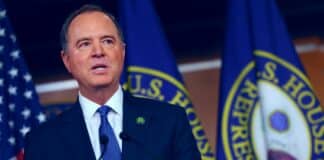Originally published October 19, 2023 7:40 am PDT
In the race for GOP campaign funds, former President Donald Trump remains unparalleled, outpacing all his Republican contenders combined.
The latest financial disclosures for the third quarter paint a picture of Trump’s enormous war chest, hinting at the challenges his opponents face in the run-up to the primary votes in January.
Donald Trump’s campaign reported an impressive $37.5 million in reserves at the end of September, according to The Associated Press (AP).
This is despite his political machine spending over $20 million this year on legal costs related to various lawsuits and court cases.
The former president’s legal woes have been a boon for his fundraising efforts, however.
His campaign has been reporting massive surges in donations in the wake of his indictments.
According to disclosures submitted to the Federal Election Commission released on Sunday, more than $2 million poured into Trump’s coffers within a day of the Aug 24 release of his mugshot following his booking at a jail on Georgia state on charges related to the 2020 presidential election.
“It was the biggest two-day sum the campaign has reported taking in this year, a sign that Trump’s legal problems, unprecedented for a former U.S. president, have become a major fundraising asset,” Reuters reports. “Most of the contributions are less than $50.”
The financial gap between Trump and his closest GOP competitors underscores the narrative that the nomination is Trump’s to lose.
His rivals, such as Nikki Haley, Ron DeSantis, and Tim Scott, are grappling with limited resources and time to change the tide.
An illustration of this disparity is seen in the campaigns of former U.N. Ambassador Nikki Haley and South Carolina Senator Tim Scott.
While Scott began the GOP presidential race with a substantial $21.9 million, Haley was initially trailing with $8.3 million.
Haley’s fortunes seem to be changing.
She recently doubled her funds to $11.5 million, largely credited to her commanding debate performances.
On the other hand, Scott saw a decline in his funds, ending September with $13.3 million, a sharp drop from his initial $21 million.
Adding to Scott’s woes, the super PAC supporting him has also canceled TV slots worth millions set for this fall.
Florida Governor Ron DeSantis, another contender, had a formidable start with a $20 million budget.
However, after a rapid expenditure of $8 million during an initial six-week stretch that covered costs for over 100 staff, enhanced security, and upscale travel, his reserves dipped.
Although he has maintained decent fundraising, by the end of the third quarter, he had $12.3 million left.
A significant element to watch will be the financials of his super PAC, Never Back Down, disclosures of which are due later.
Former Vice President Mike Pence, despite his high-profile role during the Trump administration, faces challenges in both recognition and funds.
Starting October with a meager $1.1 million and an outstanding debt of $621,000, his campaign’s sustainability is questionable.
Pence’s efforts at self-funding are evident with a personal loan of $150,000 in July.
“Now is not the time for on-the-job training. We don’t need to bring in a rookie,” Pence remarked in a notable GOP debate exchange in August.
Yet, meeting the fundraising criteria for upcoming debates, set by the Republican National Committee, may be a tall order for him.
In stark contrast to the GOP contenders, President Joe Biden’s fundraising capabilities, aided by the advantages of incumbency, are in a league of their own, AP notes.
His campaign has reported an influx of $71 million since July, thanks to a joint fundraising agreement with the Democratic National Committee and state party committees.
This allows individual donors to contribute nearly $1 million per donation.
Republican nominees, in contrast, are limited to $3,300 per donor for the primaries.






